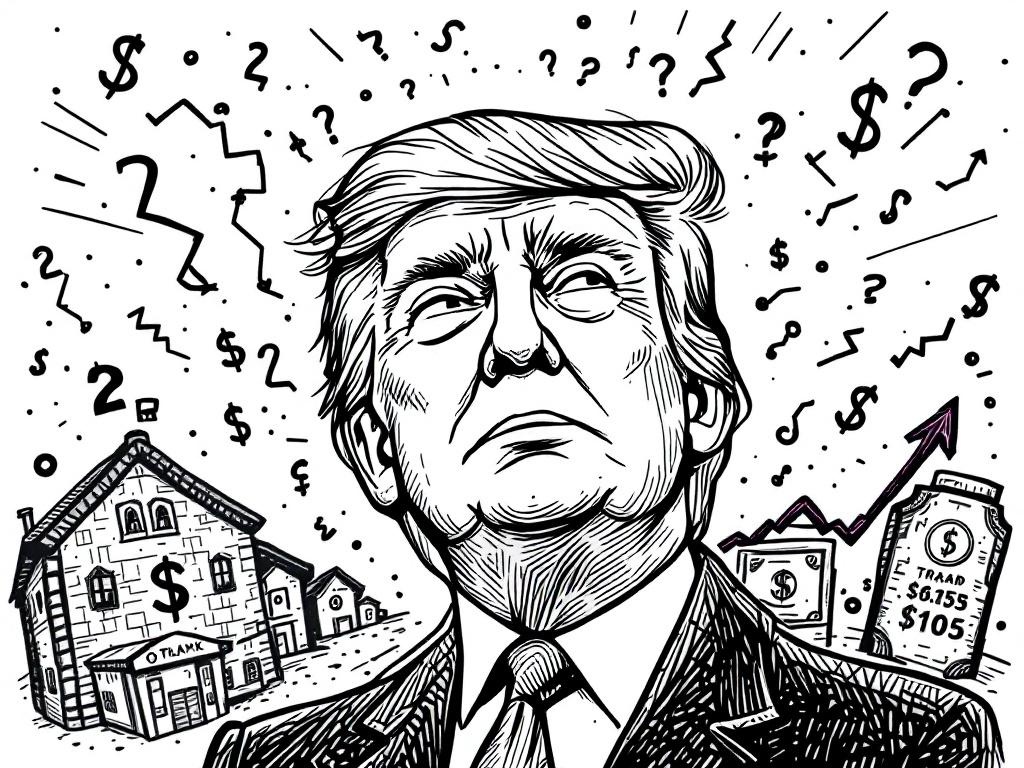Trump's Tariff Policy Sparks Market Uncertainty and Global Reactions

New York, Monday, 11 August 2025.
President Trump’s fluctuating tariff stance roils markets as analysts monitor impacts on trade. ‘TACO’ highlights unpredictability in his approach, with potential global economic repercussions.
Market Volatility Amid Tariff Changes
On Thursday, President Donald Trump imposed new tariffs that effectively raised the average tax on U.S. imports to levels unseen since the 1930s. This action came as a surprise to many traders and analysts, who have coined the term ‘TACO’ or ‘Trump Always Chickens Out’ to describe his previous reluctance to follow through with aggressive tariffs when facing market downturns. However, this time, the tariffs seem to be intended as a strategic move rather than a bluff, signalling a more assertive stance on trade policies [1].
Economic Impact and Revenue Implications
Despite the new tariffs being aimed at increasing revenue, they account for only a small fraction of the federal government’s total income, constituting just 2.7% of revenues in the fiscal year 2025. The U.S. Department of the Treasury has collected over $29 billion in customs and excise taxes as of July 2025, underscoring an acceleration in tariff revenue. Despite this, experts warn that the relative economic gains from these tariffs may be offset by the broader negative impacts on the economy, including potential contractions and increased import prices [2][3].
Global Trade Relations and Legal Challenges
Trump’s tariff policies have drawn international scrutiny, evidenced by a pending court ruling challenging the legality of these tariffs under emergency powers. The United States Court of International Trade previously indicated that Trump overextended his tariff authority, raising concerns over potential legal repercussions that could trigger significant economic consequences, similar to those witnessed in the 1929 crash [4]. Meanwhile, lobbying from over 30 nations continues, as countries like India face steep tariffs and have begun pausing defense procurements from the U.S. due to these newly imposed duties [5][6].
Shifting Global Dynamics and Future Outlook
The ongoing tariff disputes have led several countries to divert their trade efforts away from the U.S., seeking alternative markets. For instance, Chinese exports to India and the EU have surged, largely due to the hostile trade environment with the U.S. Recent hikes in tariffs affecting over 90 countries have also not aligned with the traditional U.S. diplomatic approach, suggesting a potential reconfiguration of international trade agreements. As analysts keenly observe these developments, they warn that such drastic measures, while potentially beneficial in specific contexts, may lead to long-term market instability and shifts in global trade patterns [7][8].
Sources
- www.cnn.com
- www.npr.org
- www.reuters.com
- www.cnn.com
- www.bbc.com
- www.aljazeera.com
- www.politico.com
- www.piie.com